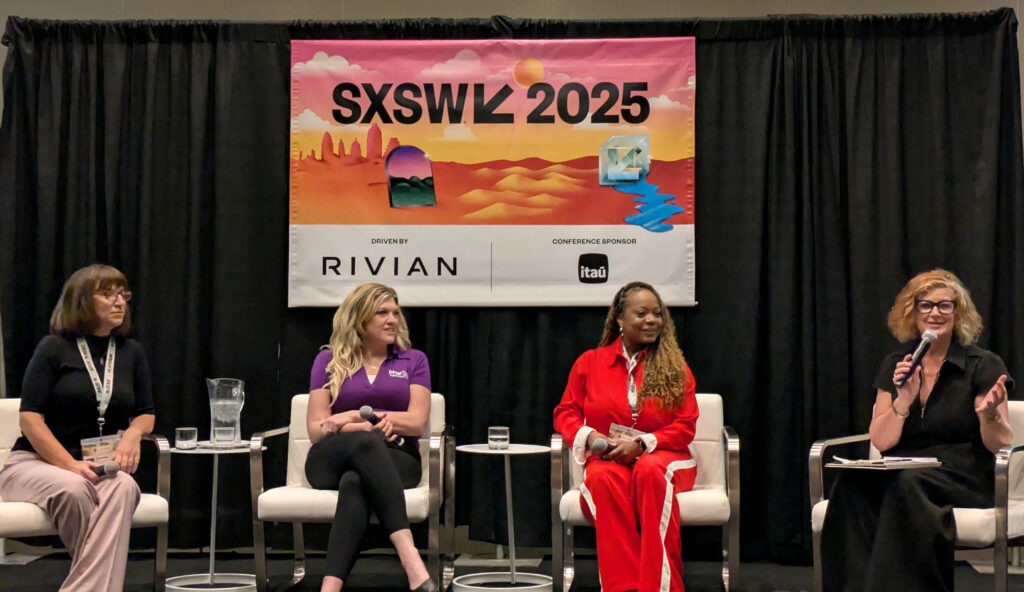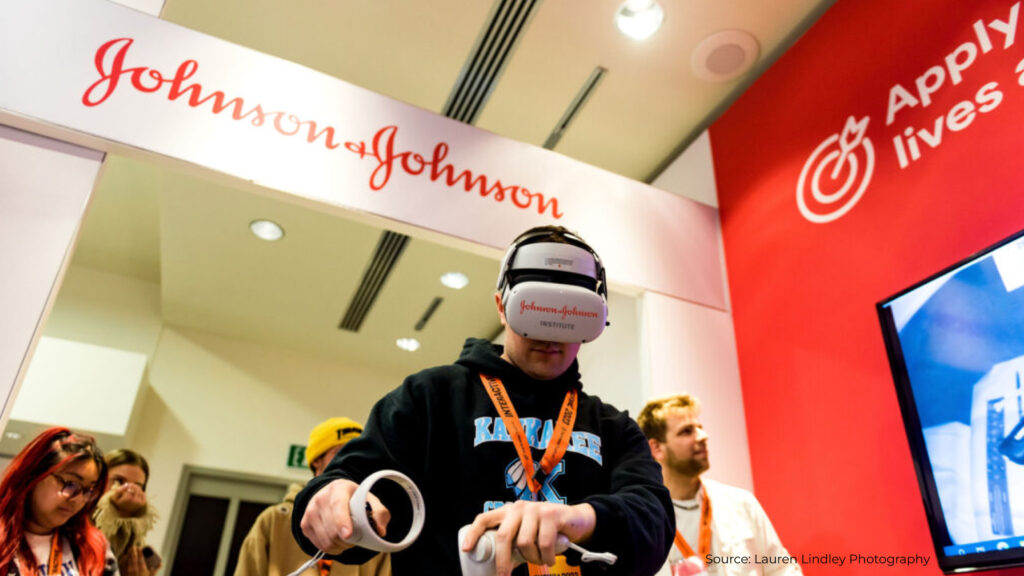This year, Impact XM attended Reuters’ 2-day PharmaUSA event in Philadelphia, PA so that we could focus on bringing the latest trends in healthcare events to our clients and followers in the congress space. Hosted by Reuters Events, Pharma USA is the place to be if you wish to meet North America’s pharma changemakers, leading solution providers, patient experts, and industry heavyweights – from commercial, marketing, medical affairs, patient engagement, market access and RWE. For the event this year, we identified five (5) clear themes presented throughout the congress experience, including the larger sessions, smaller roundtables, and one-on-one conversations in the hallways.
The themes for 2023 are:
- patient-centricity
- digitalization,
- data
- DE&I
- omnichannel
Not surprisingly, these five topics are all related and influential over each other representing the nexus of Pharma that can drive better healthcare for tomorrow.

Patient Centricity
For the past couple of years, pharmaceutical organizations have refocused their guiding philosophy to be all about the patients. Although “patient centricity” is the concise term most often used, this concept does extend beyond the patient to their supportive network: family, friends, and any other caregivers. This attention on the patient also includes acknowledgment of not just their symptoms and ability to survive, but also their ability to thrive with consideration of their Quality of Life (QoL.)
In my opinion, the best speaker on this topic was Maria Whitman, Managing Partner, Global Commercialization Strategy and Solutions, at ZS. Her talk, “Editing pharma’s DNA: The model of tomorrow starts today,” began with a powerful cancer patient’s journey, identifying the all-too-common pain points experienced by patient navigating healthcare from diagnosis to treatment. Her talk ended with visionary and pragmatic solutions that are possible for Pharmas to adopt to alleviate these burdens.
Another noteworthy presence was patient advocacy groups. They are finally gaining access to events such as these, through philanthropic efforts of congress organizers such as Reuters, and increasing their influence over Pharma through this seat at the table. The future looks bright for patients with this refocus by Pharmas and their partnership with patient advocacy groups.
Take-away: Congresses need to innovate and evolve to bring more of the patient voice, and less stock photos, to these events and their audiences.
Digitalization
There are more digital resources than ever before that reach patients and enable HCPs to gather data from them and communicate with them. These digital offerings include overall fitness apps, blood glucose sensor reporting apps, patient portals, fitness trackers, and medication-specific communications. These can be used to improve patient adherence and communication of adverse events with their HCP.
Although certain patients are more likely to adopt these digital efforts than others and receive the immediate benefit, any of those data collected can be analyzed by the Pharma (if involved) to improve their therapies for all recipients. Personalization is enabled through the gathering of these data that can inform the customization of the settings on these platforms to ultimately improve the overall patient experience.
Take-away: there is an opportunity to bring this thinking to congresses by demonstrating how your company is bringing digital connectivity to care, and through personalization of the HCP experiences at your exhibit.
Data
As a fellow scientist once told me: “I like big data, and I cannot lie.” There are more and more data collected each year. We can measure both qualitative and quantitative variables that we never could before. With more data generation comes a blessing and a curse: how do we best precisely AND accurately capture it, which data do we use, how do we use it, what data are patients comfortable sharing, and what else are we still not measuring? The primary takeaway is to gather and use “actionable data.“
The most meaningful data to inform what is the next best action will be distinct for organizations and functions. It is the opportunity, and the challenge, for each group to
1) identity what data points those are,
2) improve and systematize their collection,
3) develop the appropriate and rigorous analyses, to ultimately,
4) leverage these data-based insights to optimize decision making.
Take-away: Healthcare should focus on gathering and using ‘actionable’ data.
DE&I
Diversity, Equity, and Inclusion is essential in all our affairs: workforce, support in our communities, clinical trial participants, and health equity. What does this look like? The workforce goal is to have Pharmas staffed by diverse employees, and, importantly, across all functions and levels.
To improve the DE&I of the Pharma workforce, some Pharmas are starting at the beginning: offering opportunities to adolescents and young adults.For example, through their Scholars Program, Horizon Therapeutics’ provides scholarships that encourage students from historically underrepresented backgrounds in Pharma to gain exposure to careers in science, technology, engineering, arts and math (STEAM).
The clinical trials aspiration is to address identified challenges that threaten the integrity of clinical trials; the participants of clinical trials need to be diversified in every sense possible while still representing the affected patient population. The primary focus of the DE&I sessions was on health equity, which is the goal in which everyone has an equal access to healthcare to reach their best possible health.
Take-aways: Pharma needs to elevate their DE&I missions and create opportunities for these conversations throughout their congress participation.
Omnichannel
Omnichannel is the opportunity to use all (“omni”) platforms (“channels”) possible in the dissemination of marketing materials to maximize the audience (eyeballs) reached. This means not only having a TV ad but also adapting a version to share over popular social technologies including, but not limited to, Instagram, Twitter, Facebook, LinkedIn, and recently TikTok.
With the omnichannel approach comes a new ethical and legal grey area: the emerging voice and role of patient advocates, those sponsored and unsponsored. The legal system has not yet caught up with this activity to set boundaries on what is, and what is not, permissible to be shared content by patients about their personal experience with the therapy received.
Take-away: Congresses are a continuum and not just a moment in time. Omnichannel communications ensure we continue dialogue, before, during and after the event.
Conclusion
Reuters Events did an excellent job inviting speakers from a diversity of backgrounds as well as striking a great balance of breadth and depth across session topics. There were also important voices missing from the congress program that are a vital part of the healthcare ecosystem: patients, retail pharmacists, and nurses. We look forward to hearing these voices, seeing progress in all five of these focus areas over the next year, and to learning about the new emerging themes at PharmaUSA 2024.
If you wish to learn more about these five themes or improving your marketing strategy in the pharma industry, please feel free to reach out to [email protected]
By: Leah Cepko
Director, Strategy & Planning







